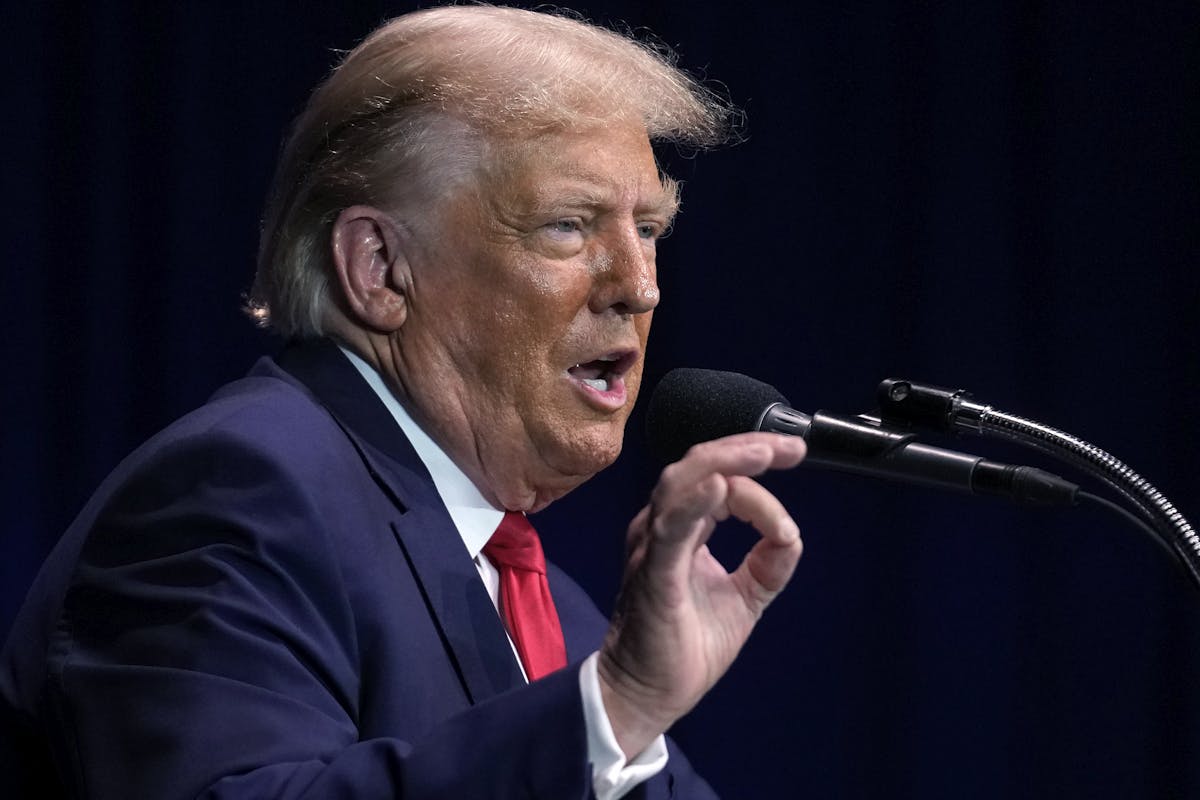Jack Smith, Accusing Trump of Wielding Social Media as a ‘Weapon,’ Seeks To Block Him From ‘Friending’ Potential Jurors
It appears as if the former president’s spotlighting a New York law clerk gave the special counsel an idea for a motion.

A filing by Special Counsel Jack Smith attempting to set jury ground rules for his January 6 trial of President Trump — internet browsing is kosher, “friending” or “following” is not — highlights the stakes in the choosing of the 12 persons who will bring up the verdict in what is sure to be one of the trials of this, or any, century.
The motion for “fair and protective jury procedures” comes as Mr. Trump has already maneuvered to have the case dismissed on executive privilege grounds, a request that Judge Tanya Chutkan is considering. No jury would be convened should that strategy bear fruit for the former president.
Mr. Smith, who reminds Judge Chutkan that he is charging Mr. Trump with “attempting to overturn the presidential election, disenfranchise millions of Americans, and obstruct the peaceful transfer of power,” is planning on a trial and is focused on the process by which a jury is selected from residents of the District of Columbia. President Biden won 92 percent of the District’s vote in 2020.
The Constitution guarantees that “in all criminal prosecutions, the accused shall enjoy the right to a speedy and public trial, by an impartial jury of the state and district wherein the crime shall have been committed.” The meaning of “impartial” is likely to be heavily debated when it comes to possibly the most famous defendant in American history.
The special counsel requests a “written juror questionnaire” to be distributed before jury selection begins that would include access to “prospective jurors’ identifying information and the ability to conduct open-source research regarding them.” Mr. Smith also wants to bar “public identification of potential or selected jurors,” which he claims is “standard among courts in this District.”
While Mr. Trump has not yet briefed Judge Chutkan on this question, the former president has put the court on notice that he opposes Mr. Smith’s motion. The question is for the jurist to decide, as the Supreme Court tasks judges with managing jury selection to “preserve fairness and at the same time protect legitimate privacy.”
It appears as if Mr. Smith has his eyes on Mr. Trump’s wide-ranging legal tsuris, as he cites the former president’s use of “public social media platforms in an intimidating manner” in a “separate trial in New York last week.” The reference is to the civil fraud case against Mr. Trump presided over by Judge Arthur Engoron. Mr. Trump faces a partial gag order in that case after insulting the judge’s law clerk, Allison Greenfield, on social media.
Mr. Trump also faces the possibility of a gag order in the January 6 case — a hearing on that issue is set for October 16 — and Mr. Smith’s request that Judge Chutkan impose restrictions on the parties’ ability to “research” and discuss potential jurors aligns with his pursuit of that protective order in the case more generally.
The prosecutor writes that “given the particular sensitivities of this case, stemming both from heightened public interest and the defendant’s record of using social media to attack others, the Court should impose certain limited restrictions on the ability of the parties to conduct research on potential jurors during jury selection and trial and to use juror research.”
Here, Mr. Smith allows the ubiquity of “open source internet research, including by viewing the public-facing social media accounts of potential jurors,” but seeks to limit “research beyond what is publicly available,” especially if it “results in any kind of contact with a potential juror.” He does not want jurors’ personal information to become public.
Mr. Trump’s reposting of a picture of Ms. Greenfield with Senator Schumer could be decisive. The former president captioned the image, “Schumer’s girlfriend, Allison R. Greenfield, is running this case against me,” and linked her private Instagram account. There is no evidence that Ms. Greenfield is dating Mr. Schumer.
Mr. Smith hypothesizes that Mr. Trump reviewed “opposition research on court staff” and that there is “cause for concern about what he may do with social media research on potential jurors in this case.” He cites as a possible template for Judge Chutkin the oral order from Judge Engoron “that no party speak publicly about members of the court staff.”
Mr. Smith wants Judge Chutkan to bar any move to “‘follow’ or ‘friend’ anyone” on social media or make any “analogous affirmative request to gain access to posts or profiles that are not otherwise publicly available.” This means that what is prohibited is not “mere passive viewing of publicly available information” but rather more intentional engagement.
To persuade Judge Chutkan to impose these restrictions on jury selection, Mr. Smith cites what he calls Mr. Trump’s “continued use of social media as a weapon of intimidation in court proceedings.” The special counsel alleges threats made by Mr. Trump’s supporters to Judge Chutkan and the grand jury at Fulton County, Georgia, to bolster his contention that prospective and selective jurors should be shielded from “intimidation and fear.”
The website for the federal court at the District of Columbia, the venue where Mr. Trump will be tried, tells prospective jurors that they “play a significant role in ensuring that justice is carried out fairly and impartially,” and that they “get to take part in one of the most meaningful experiences available to a United States citizen.”

